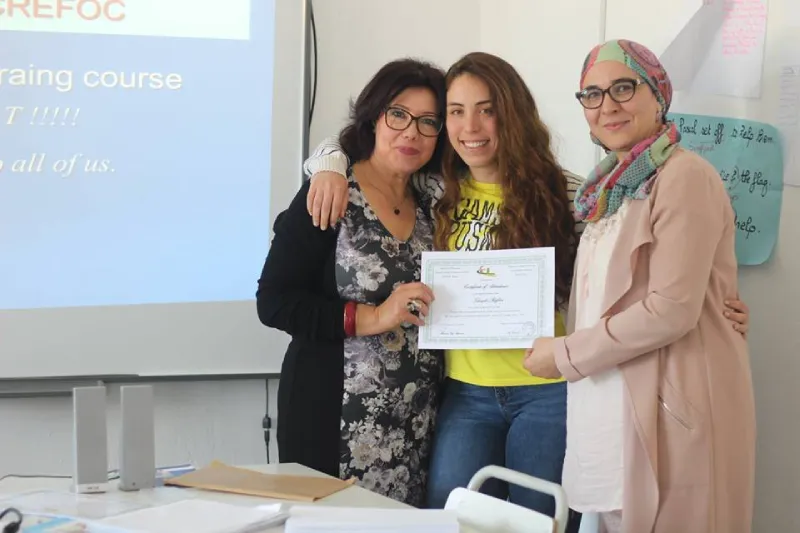
When Maaouia Haj Mabrouk applied to a U.S. Embassy exchange program for ESL instructors and administers with the Texas International Education Consortium, she was already in a position of overseeing ESL teachers across Tunisia in her previous role as an ELT Senior Inspector for Tunisia’s Ministry of Education.
“My job consisted of mentoring and supervising teachers’ work, introducing them to modern, student-friendly methods of teaching and evaluating the way they assess their students’ performance,” said Haj Mabrouk. The exchange program offered her an opportunity to not only learn from experts in ELT instruction but see firsthand the American education system at work during the program’s residencies in Texas schools.
Haj Mabrouk was accepted, and in April of 2019, she joined her cohort of 50 English language teachers and administers from across the MENA region in Austin, Texas. Since coming on the exchange, Haj Mabrouk has been promoted to General Inspector of English for Tunisia’s Ministry of Education. Her experiences on the exchange have given her powerful tools to help her in her new role, as well as a strong community to continue to learn from and share within her exchange cohort.
“Participating in an exchange program organized by the U.S. Embassy and TIEC was like seeing a lifelong dream come true. As an ELT inspector, I was eager to get hawk-eyed about a number of issues relating to the U.S educational system in particular and American society in general,” explained Haj Mabrouk.
She was eager to better understand the American ELT pedagogy to teach students of diverse backgrounds, to incorporate the cultural dimensions of language learning, as well as to study how American teachers integrate new technologies in their classrooms.
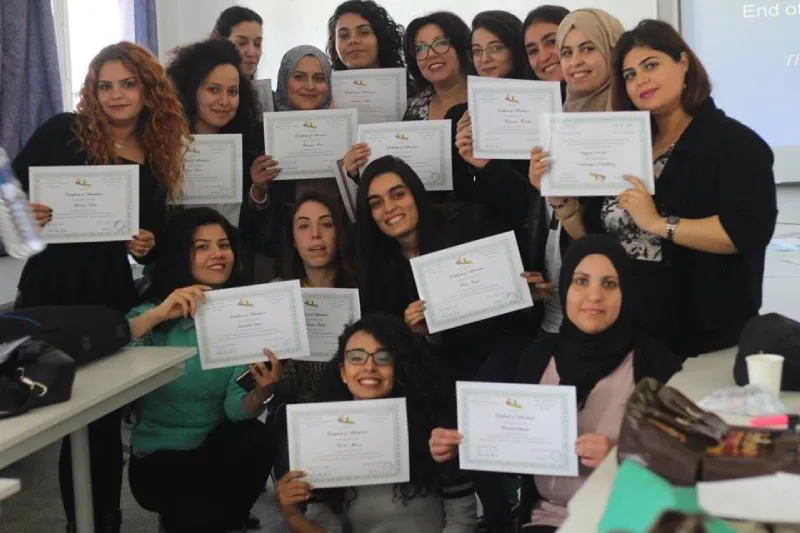
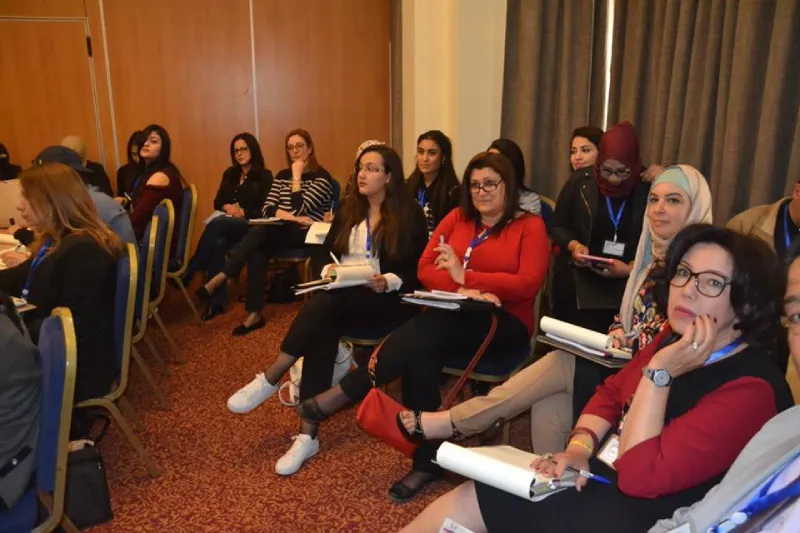
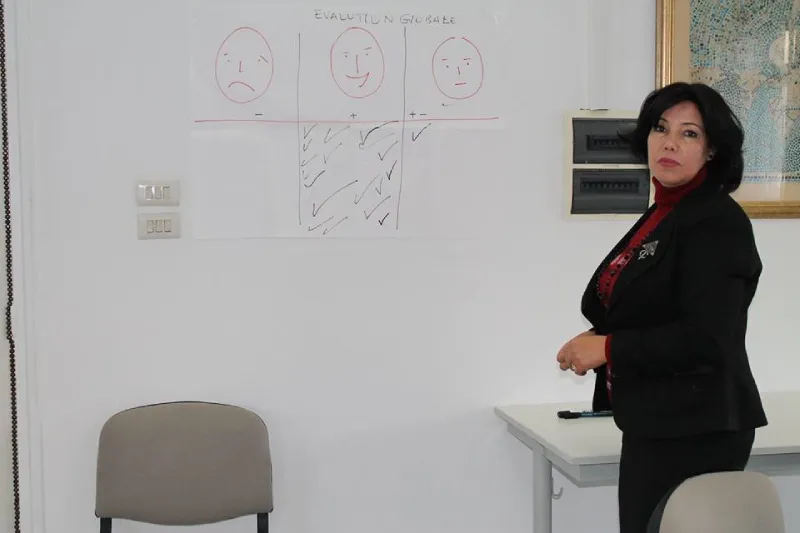
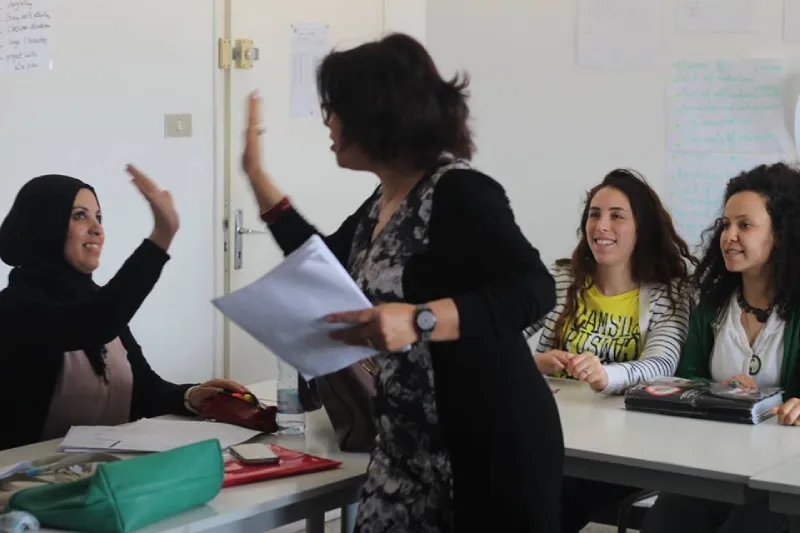
Different Teaching Approaches in Action
Haj Mabrouk got to see many of the American teaching theories in action by the lecturers themselves during the first half of her exchange, during a series of seminars held at TIEC’s headquarters in Austin.
“Most of [the experts and lecturers] opted for interaction patterns that prioritize pair and group work and highlight the involvement of participants in the construction of knowledge. Course contents were all sources of enrichment [for me],” explained Mabrouk.
As a school administrator, her courses also focused on school leadership models and different types of schools in the United States. She was surprised at the growing number of assessments for American students.
“What I personally did not expect was the so many tests that American students had to sit for. In fact, because the U.S. system of education is assessment-based and competition is [soaring], students take numerous low-stake and high-stake tests, both on the state level and the national level,” she said. Mabrouk and her fellow exchange participants also had the opportunity to hear about newer models of schools, like Texas’ magnet schools and how the U.S. assessment-based educational system was affecting students and families.
“The phenomenon of magnet schools nurtures this heated competition for marks and excellent school performance. Hence, parents do their utmost, so their offspring succeed in winning a place in one of these prestigious schools,” she said.
Mabrouk took part in a week-long residency at Burnet Middle School. The residency gave her an opportunity to observe American instructors and administrators at work to see practices and approaches she would want to apply when she returned to her own oversight role in Tunisia. She was invited to shadow teachers and take part in learning walks with the academic dean of the middle school, along with an interview with the school’s principal.
“I liked the weekly meetings held by each department so as to discuss students’ results and envision pathways to improve them. I also find the learning walks quite interesting as they allow administrators to study, analyze and ponder on one particular aspect of the lesson,” she explained.
She also found herself impressed with the Science, Technology, Engineering, Art and Math method or STEAM method of teaching, which integrates various forms of art in the leaching of other core STEM subjects.
“I was impressed by this STEAM method when I visited Burnet middle school and shadowed a teacher who was teaching mathematics using drawing and singing,” she recalled.
But the American teachers and experts were not her only source of learning during her exchange. Mabrouk said, “We [my cohort] learned a great deal from one another. We lived together at Dobie Center and studied together at TIEC. That was a marvelous opportunity for us to exchange ideas about courses, to work together and to know one another’s culture. Internship enhanced togetherness and promoted fruitful exchange. We were an ideal learning community”
Since Returning from the Exchange
When she returned home to Tunisia, there were some practices learned during her exchange that she immediately put in place for her own teachers.
“The first thing I did as soon as I got back from Texas was to launch Professional Learning Communities in some schools that are under my supervision. I conducted PLC projects, in partnership with school headmasters, officials from the regional board of education and student parents,” said Mabrouk. “We now work on improving students’ performance in many EFL learning domains, such as writing, speaking, adopting 21st-century skills.”
Her exchange experiences and new approaches soon helped lead to her promotion to General Inspector of English and more responsibilities. Today, Mabrouk oversees mapping programs and textbooks for Tunisia’s Ministry of Education, conducting research projects with teachers, evaluating teaching materials, as well as designing national exams.
Mabrouk explained that her new responsibilities are made easier by a wealth of ongoing support and collaboration with her exchange cohort.
“I am still in contact with many members of my exchange cohort from other countries of the MENA region. We meet on WhatsApp and Schoology. We exchange ideas and we upload valuable books and documents about EFL teaching and learning. I find that unequivocally enriching,” said Mabrouk.
To see more photos of the program, visit TIEC’s Flickr page.
Additional resources
Using Master Scenes in The Classroom: A Cinematic Tool Brought to School – Article written by Maaouia Haj Mabrouk
